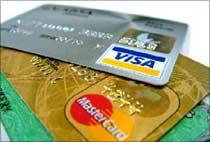Credit cards of late have a negative connotation, and are pronounced as complete no-no by many, because of the high interest rates that are charged on late payments/defaults.
 Don't let this negativity cloud perception of the product. You would be surprised to know that, if you are judicious in using this product, you stand to benefit monetarily, and of course it eliminates the need for you to carry cash everywhere.
Don't let this negativity cloud perception of the product. You would be surprised to know that, if you are judicious in using this product, you stand to benefit monetarily, and of course it eliminates the need for you to carry cash everywhere.
More often than not the problem is that people do not understand the product well and hence are not able to use it to their advantage.
The credit card company offers you a 'free credit period' of around 50-55 days. The misconception most people have is that this free credit period is from the date of purchase. It is actually from the date of billing. E.g. Mr Anand's billing cycle date is December 28 to January 27 and his credit free period is 50 days.
If his purchase was on January 22, he would enjoy credit for 25 days. However if he made the same purchase on say Jan 1, he would enjoy credit free period of 47 days. So if you plan properly, you can enjoy maximum credit every month, which will help you manage your cash flows effectively, and will also help you earn the extra bit of interest on the cash that you have currently not spent on making the purchase.
In addition to the free credit period, every purchase made on your credit card, earns you reward points which when accumulated to a big amount can be exchanged for a range of items such as electrical appliances, flight tickets, home ware etc. These rewards will differ from company to company.
Also credit card companies offer discounts, promotional offers with respect to shopping, entertainment etc. For example, if you buy petrol from a particular brand of petrol pump, you get a small percentage of money credited back to your account after a certain number of days.
For the credit card to make money for you, two key things you need to keep in mind
Cost of default: The interest rate on defaults ranges from anywhere between 2 per cent-3.5 per cent per month. So in effect it is a whopping 24 per cent-42 per cent p.a. Also, the interest starts from the date of purchase and not the billing date i.e. you do not get any interest-free credit period and all future purchases also start attracting the interest charges from the date of purchase.
So use the credit card if and only if you're sure of having the means to pay the bills in time. Also, don't forget that your credit score will get impacted too which will impact your future borrowing.
Credit limit: Keep a tab on your credit limit. Overshooting your credit limit will also have dire consequences for you with respect to the interest charged and your credit score.
How do you ensure that your credit card makes money for you?
Widen the usage of your credit card (small and big purchases): You might as well earn bonus points and interest on the cash that you have not currently used, to make the purchase. You can use the credit card to pay monthly rentals, grocery bills, utility bills, gift expenses, subscription expenses etc.
So the cash that you have not used to make the purchase will earn interest for you or will be used for fulfilling other immediate needs. For example, Maitali purchased an electrical appliance for Rs 28,000 using the credit card she possessed. The purchase was made such that she could enjoy a credit free period of 45 days. The cash that she would have used to purchase this appliance is now lying in her savings account which is earning her an interest of 3.5 per cent p.a.
So if she decides to pay the bill after enjoying 40 days of free credit, she earns an interest of Rs 107 in her savings bank account. Not only that, she has also earned some reward points on the purchase. The other advantage of using the credit card is your payments are recorded which makes it easier for you to keep track of your expenses.
Appropriate use of bonus points: Use the bonus points that have accumulated on buying necessities (house hold appliances, clothes, groceries etc.) rather than using it on things (luxuries) that aren't really important to you. Only if the bonus points are used practically, you are actually saving cash.
Conclusion
Credit cards if used prudently will help you in managing your cash flow better, and at the same time, will provide you monetary benefits. That's because you get interest free money for some period of time and you also earn reward/bonus points on the same.
But if you use it without deliberation, it can prove to be disastrous as interest rates charged on payment delays are very high. Also, your credit rating will take a beating, as banks report these things to the credit rating agencies, which in turn will include it as part of your credit report.
Don't forget that credit score will not only determine whether you will get a loan but will also determine at what interest. Let not easy availability of credit and attractive rewards offered fool you into making impulsive purchases. It will prove to be rather costly.